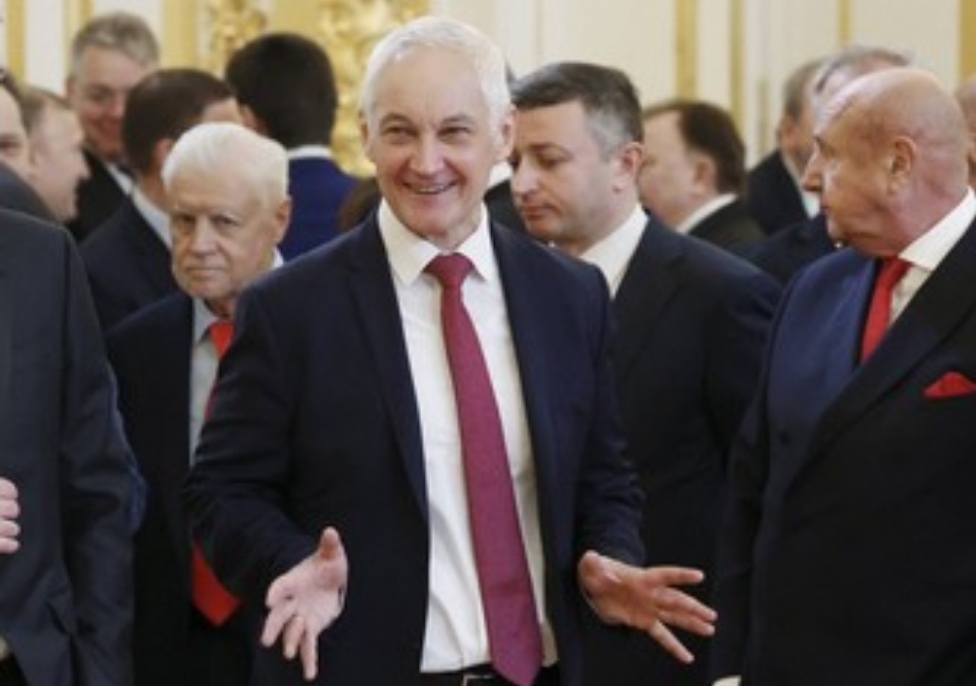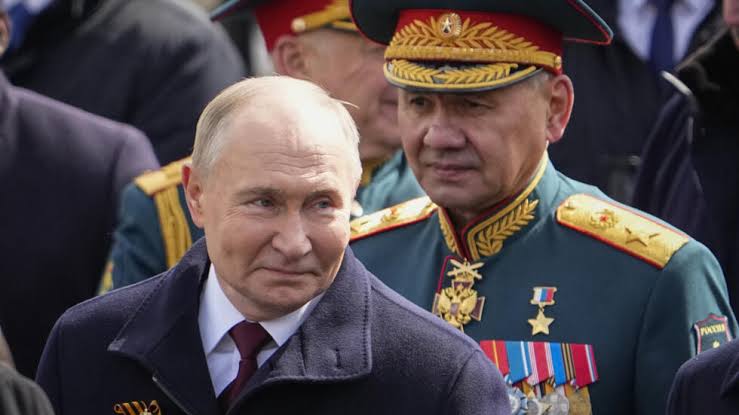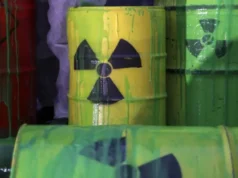Putin replaces Shoigu as Russia’s defence minister

Russian Deputy Prime Minister Andrei Belousov, center, gestures as he waits to attend a ceremony inaugurating Vladimir Putin as President of Russia at the Kremlin in Moscow, Russia, on May 7, 2024
Russian President Vladimir Putin on Sunday replaced Sergei Shoigu as defence minister in his new Cabinet that comes as he begins his fifth term in office.
In line with Russian law, the entire Russian Cabinet resigned Tuesday following Putin’s glittering inauguration in the Kremlin, and most members have been widely expected to keep their jobs, while Shoigu’s fate had appeared uncertain.
Putin signed a decree on Sunday appointing Shoigu as secretary of Russia’s Security Council, the Kremlin said. The appointment was announced shortly after Putin proposed Andrei Belousov to become the country’s defense minister in place of Shoigu.
Belousov’s candidacy will need to be approved by Russia’s upper house in parliament, the Federation Council. It reported Sunday that Putin introduced proposals for other Cabinet positions as well but Shoigu is the only minister on that list who is being replaced. Several other new candidates for federal ministers were proposed Saturday by Prime Minister Mikhail Mishustin, reappointed by Putin on Friday.
Shoigu’s deputy, Timur Ivanov, was arrested last month on bribery charges and was ordered to remain in custody pending an official investigation. The arrest of Ivanov was widely interpreted as an attack on Shoigu and a possible precursor of his dismissal, despite his close personal ties with Putin.

Kremlin spokesman Dmitry Peskov said Sunday that Putin had decided to give the defence minister role to a civilian because the ministry should be “open to innovation and cutting-edge ideas.” He also said the increasing defence budget “must fit into the country’s wider economy,” and Belousov, who until recently served as the first deputy prime minister, is the right fit for the job.
Belousov, 65, held leading positions in the finances and economic department of the prime minister’s office and the Ministry of Economic Development. In 2013, he was appointed an adviser to Putin and seven years later, in January 2020, he became first deputy prime minister.
Peskov assured that the reshuffle will not affect “the military aspect,” which “has always been the prerogative of the Chief of General Staff,” and Gen. Valery Gerasimov, who currently serves in this position, will continue his work.
Tatiana Stanovaya, a senior fellow at the Carnegie Russia Eurasia Center, said in an online commentary that Shoigu’s new appointment to Russia’s Security Council showed that the Russian leader viewed the institution as “a reservoir” for his “‘former’ key figures — people who he can’t in any way let go, but doesn’t have a place for.”
Figures such as former Russian President Dmitry Medvedev have also been appointed to the security council. Medvedev has served as the body’s deputy chairman since 2020.
Shoigu was appointed to the Security Council instead of Nikolai Patrushev, Putin’s long-term ally. Peskov said Sunday that Patrushev is taking on another role, and promised to reveal details in the coming days.
Shoigu has been widely seen as a key figure in Putin’s decision to send Russian troops into Ukraine.
Before he was named defence minister in 2012, Shoigu spent more than 20 years directing markedly different work: In 1991, he was appointed head of the Russian Rescue Corps disaster-response agency, which eventually became the Ministry of Emergency Situations. He became highly visible in the post. The job also allowed him to be named a general even though he had no military service behind him as the rescue corps absorbed the militarized Civil Defence Troops.
Shoigu does not wield the same kind of power as Patrushev, who has long been the country’s top security official. But the position he will take — the same position that Patrushev worked to transform from a minor bureaucratic role to a place of sizable influence — will still carry some authority, according to Mark Galeotti, head of the Mayak Intelligence consultancy.
High-level security materials intended for the president’s eyes will still pass through the Security Council Secretariat, even with changes at the top. “You can’t just institutionally turn around a bureaucracy and how it works overnight,” he said.



